Adam Goodkind
Local word statistics affect reading times independently of surprisal
Mar 15, 2021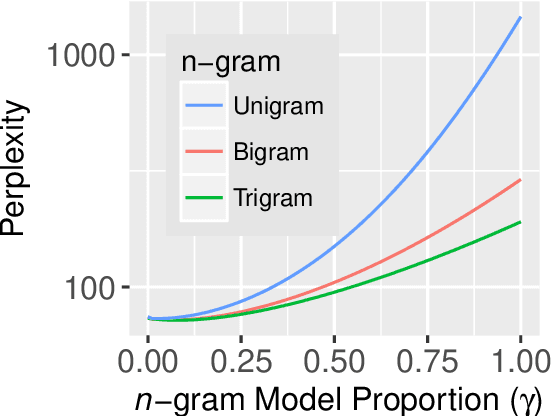
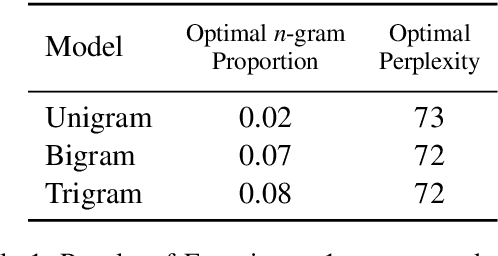

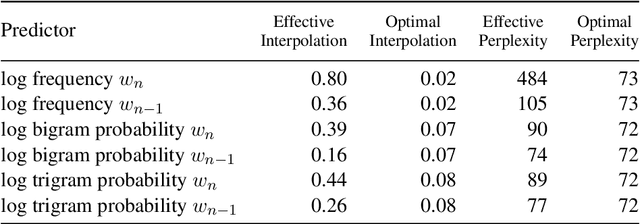
Abstract:Surprisal theory has provided a unifying framework for understanding many phenomena in sentence processing (Hale, 2001; Levy, 2008a), positing that a word's conditional probability given all prior context fully determines processing difficulty. Problematically for this claim, one local statistic, word frequency, has also been shown to affect processing, even when conditional probability given context is held constant. Here, we ask whether other local statistics have a role in processing, or whether word frequency is a special case. We present the first clear evidence that more complex local statistics, word bigram and trigram probability, also affect processing independently of surprisal. These findings suggest a significant and independent role of local statistics in processing. Further, it motivates research into new generalizations of surprisal that can also explain why local statistical information should have an outsized effect.
TypeShift: A User Interface for Visualizing the Typing Production Process
Mar 07, 2021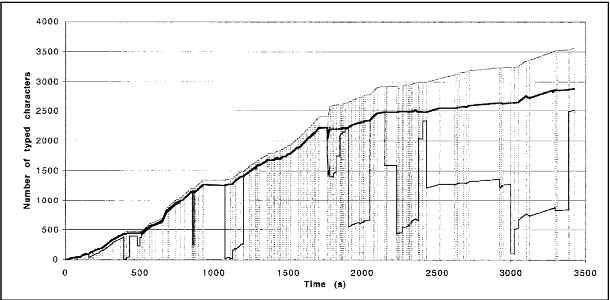
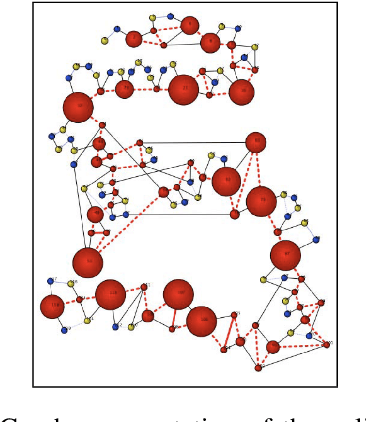
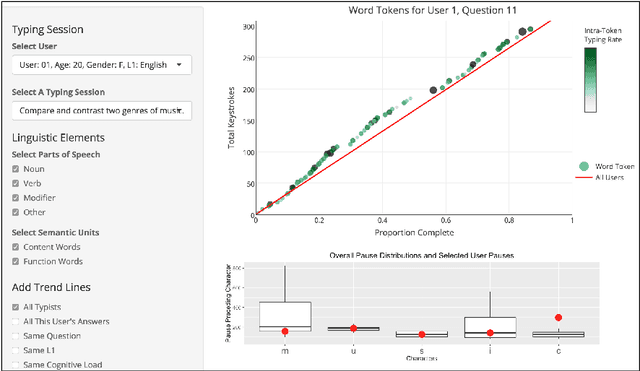
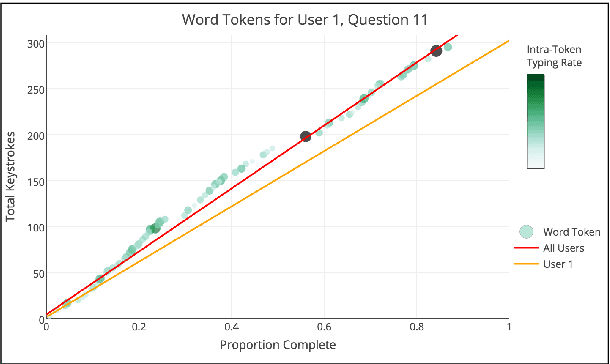
Abstract:TypeShift is a tool for visualizing linguistic patterns in the timing of typing production. Language production is a complex process which draws on linguistic, cognitive and motor skills. By visualizing holistic trends in the typing process, TypeShift aims to elucidate the often noisy information signals that are used to represent typing patterns, both at the word-level and character-level. It accomplishes this by enabling a researcher to compare and contrast specific linguistic phenomena, and compare an individual typing session to multiple group averages. Finally, although TypeShift was originally designed for typing data, it can easy be adapted to accommodate speech data, as well. A web demo is available at https://angoodkind.shinyapps.io/TypeShift/. The source code can be accessed at https://github.com/angoodkind/TypeShift.
 Add to Chrome
Add to Chrome Add to Firefox
Add to Firefox Add to Edge
Add to Edge